25+ SAMPLE Construction Project Proposal
-
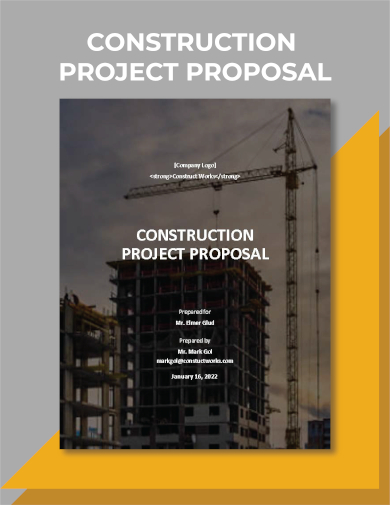
Construction Project Proposal Template
download now -
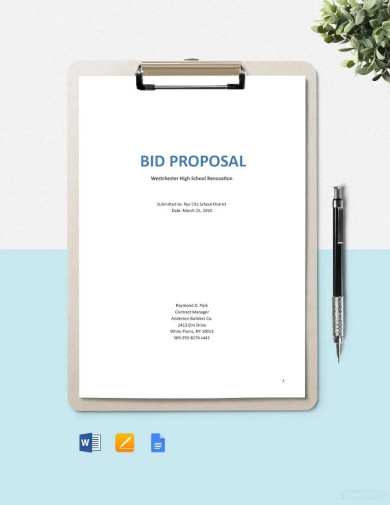
Construction Project Bid Proposal Template
download now -
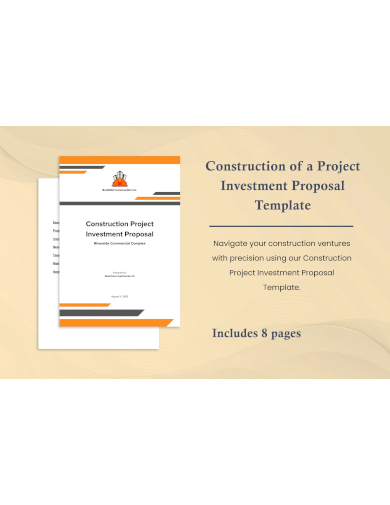
Construction Project Investment Proposal Template
download now -
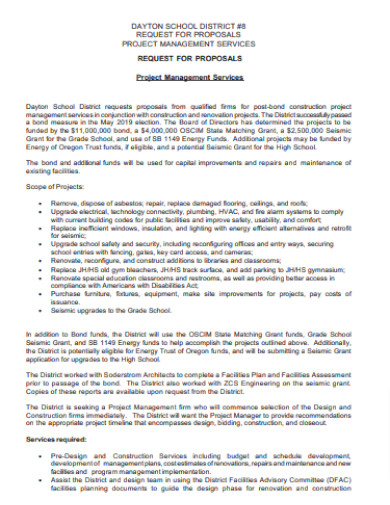
Construction Partnership Project Management Proposal
download now -
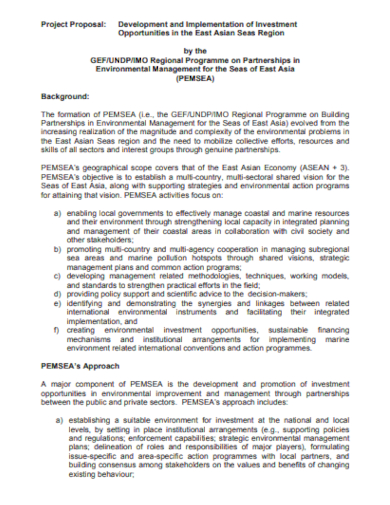
Construction Project Investment Proposal
download now -
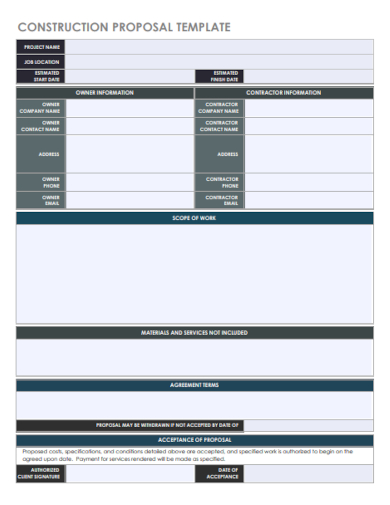
Residential Construction Project Proposal
download now -
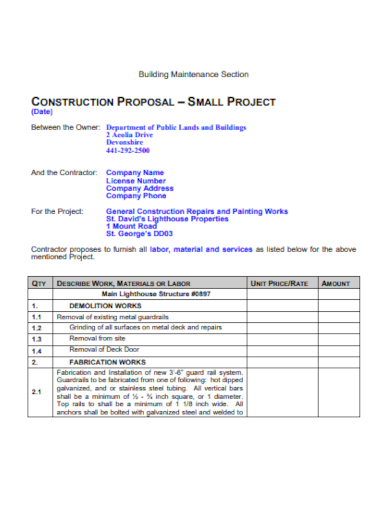
Construction Maintenance Project Proposal
download now -
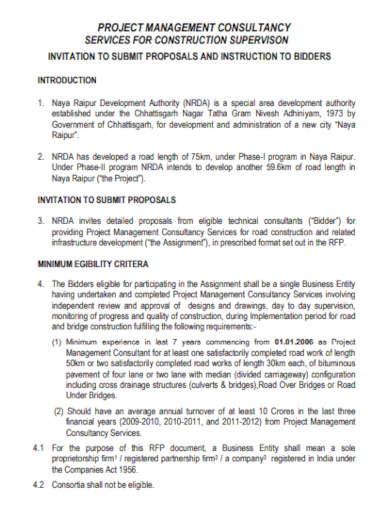
Construction Management Project Proposal
download now -
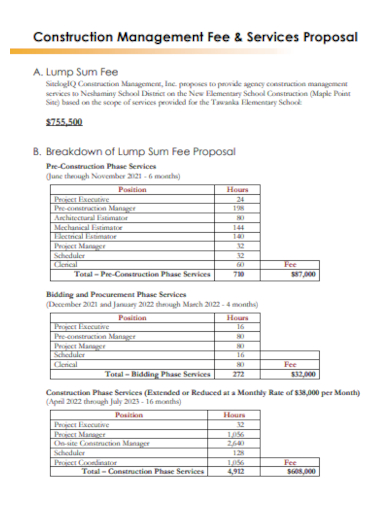
Construction Fee Project Proposal
download now -
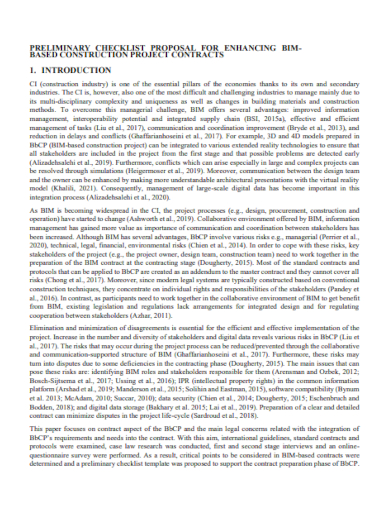
Construction Project Contract Proposal
download now -
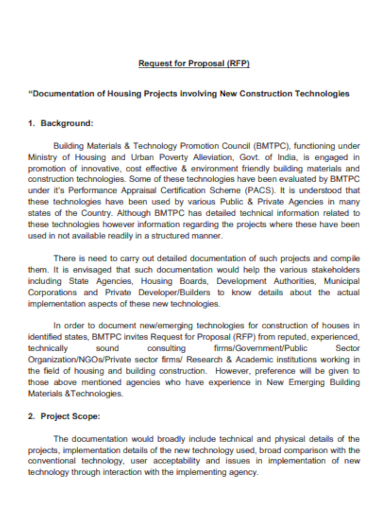
Housing Construction Project Proposal
download now -
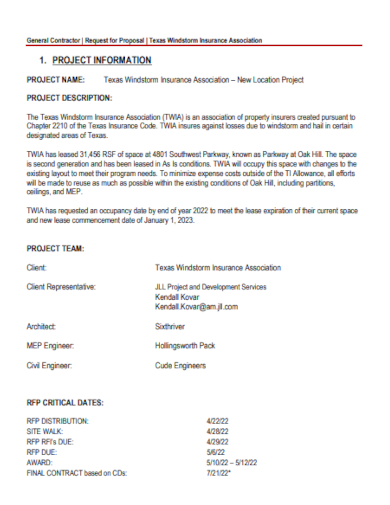
Construction Contractor Project Proposal
download now -
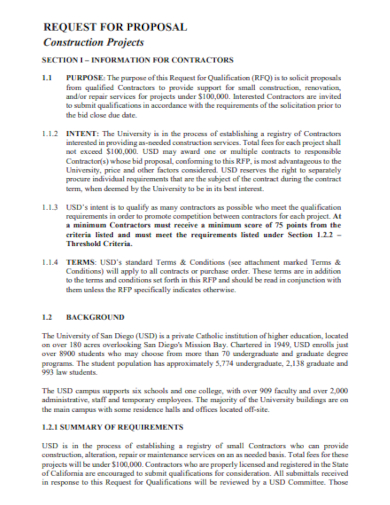
Construction Project Request for Proposal
download now -
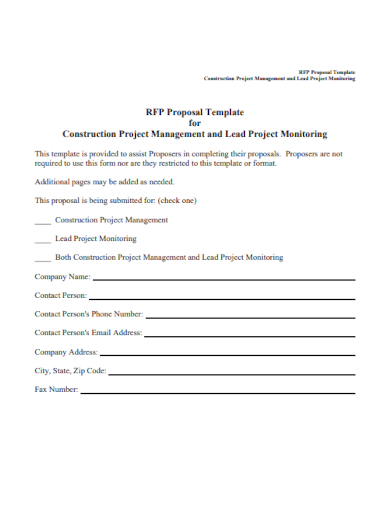
Simple Construction Project Proposal
download now -
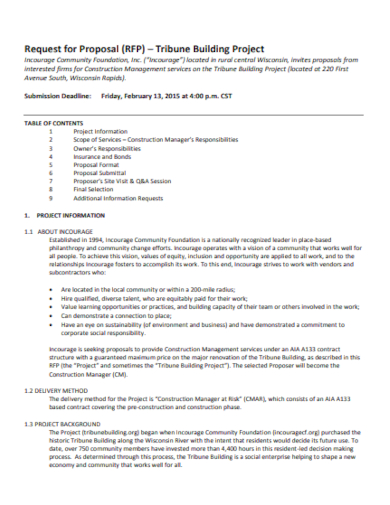
Building Construction Project Proposal
download now -
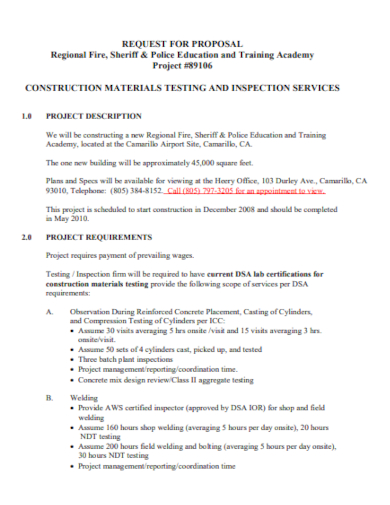
Construction Material Project Proposal
download now -
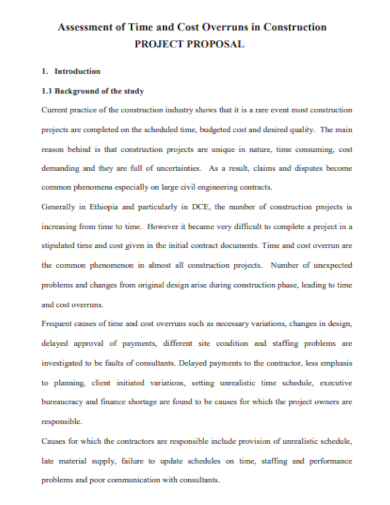
Formal Construction Project Proposal
download now -
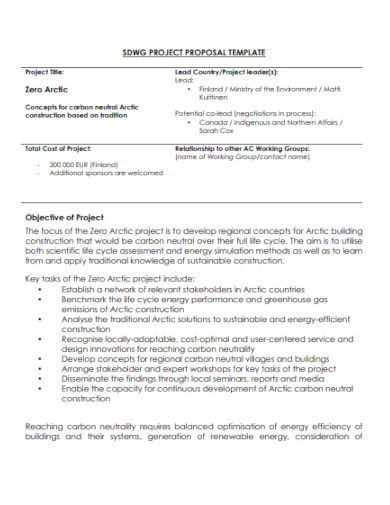
Sample Construction Project Proposal
download now -
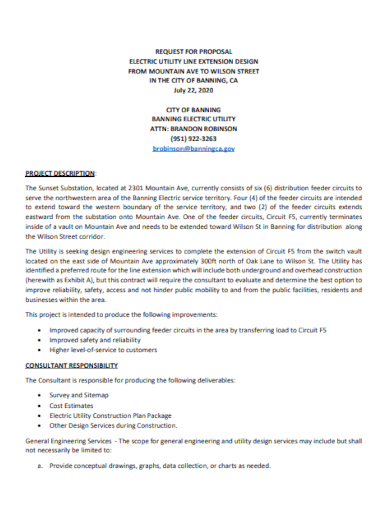
Construction Design Project Proposal
download now -
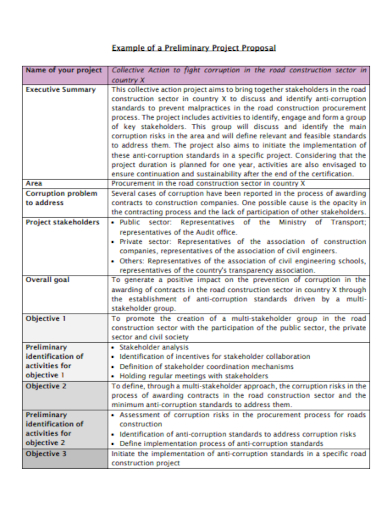
Construction Project Proposal Executive Summary
download now -

Construction Project Proposal Form
download now -
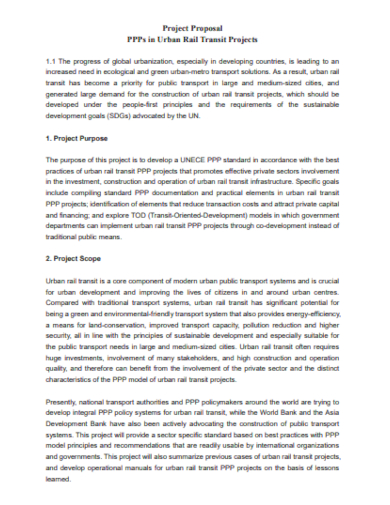
Road Construction Project Proposal
download now -
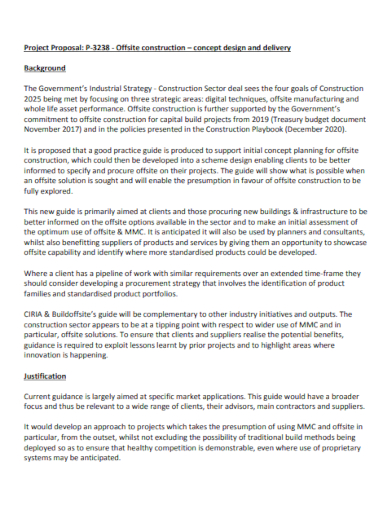
Professional Construction Project Proposal
download now -
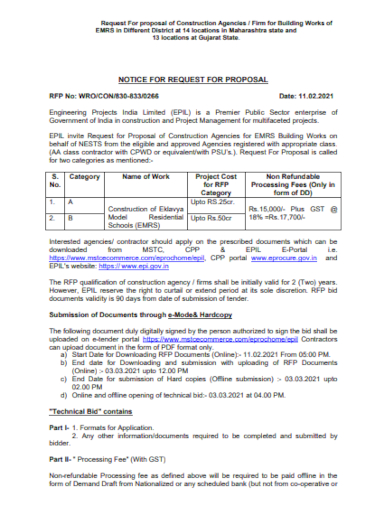
Construction Project Technical Proposal
download now -
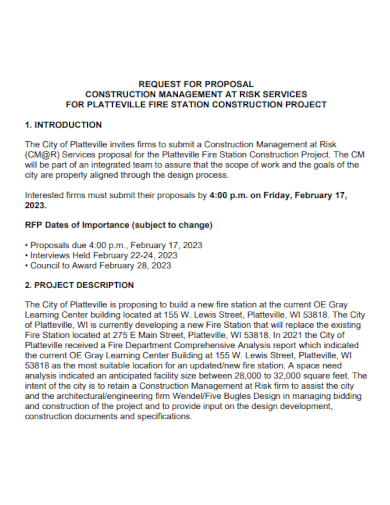
Construction Services Project Proposal
download now
FREE Construction Project Proposal s to Download
25+ SAMPLE Construction Project Proposal
Definition of a Construction Project Proposal:
Understanding the Essence of a Construction Project Proposal:
Why Your Construction Project Proposal is Crucial
How to Use the Construction Project Proposal
Key Components of an Exceptional Proposal:
Benefits of Construction Project Proposal:
Enhancing Your Proposal Impact:
What role does risk management play in a construction project proposal?
How detailed should the budget section be in the proposal?
Are there industry standards for drafting construction project proposals?
Why is a construction project proposal crucial for contractors?
Can a construction project proposal be used as a legal document?
How often should the proposal be reviewed and updated during the project lifecycle?
Definition of a Construction Project Proposal:
A Construction Project Proposal is a structured presentation detailing a proposed construction initiative, capturing aspects such as its purpose, scope, estimated budget, timeline, team, resources, risk factors, and legal considerations. It is crafted to persuade stakeholders—including clients, investors, and regulatory bodies—of the project’s feasibility and benefits, aiming to secure approval, funding, or both.
Understanding the Essence of a Construction Project Proposal:
At its core, a construction project proposal presents a clear picture of the project’s objectives, costs, duration, and methods. Think of it as a business pitch—only it’s tailored specifically for the construction industry.
Why Your Construction Project Proposal is Crucial
A construction project proposal is a foundational document in the realm of construction. It serves as a formal introduction of your company’s capabilities, your understanding of the client’s needs, and your vision for bringing a project to fruition. A well-crafted proposal can set the tone for the entire project, and here’s why it’s so vital:
First Impressions Matter:
Just like any other industry, in construction, your first impression can be a lasting one. A detailed, clear, and professional proposal gives clients confidence in your company’s ability to deliver.
Showcases Your Understanding:
A proposal highlights your grasp of the project’s scope, challenges, and requirements. It communicates that you’ve listened to the client’s needs and have a strategy in place to address them.
Defines the Scope of Work:
It clearly outlines what will (and will not) be part of the project, ensuring that there’s a shared understanding between you and the client, thus reducing the potential for disputes or misunderstandings later on.
Basis for Financial Decisions:
Your proposal provides a detailed breakdown of costs associated with the project. This transparency not only helps clients understand where their money is going but also aids in securing financing or budget approvals.
Sets Clear Timelines:
Outlining a projected timeline for the project demonstrates your commitment to timely delivery and sets clear expectations for project milestones.
Mitigates Risks:
A well-thought-out proposal anticipates potential challenges and offers solutions or contingencies. This proactive approach can minimize risks and instill confidence in your problem-solving abilities.
Differentiates You from Competitors:
In a competitive bid situation, your proposal can be the difference between winning a contract or not. The detail, clarity, and professionalism you display can set you apart from other bidders.
Outlines Terms and Conditions:
It’s essential to have a section detailing the terms and conditions of the project. This provides a legal foundation for the project and outlines the responsibilities and rights of each party.
How to Use the Construction Project Proposal
A construction project proposal is not just a document to be glanced at once and set aside. It’s an active tool that can be referred to and utilized throughout the project’s duration. Here’s a detailed guide on how to effectively use it:
- Kick-off Meetings: Begin any project discussion by reviewing the proposal. This ensures that everyone starts on the same page and any early misconceptions can be cleared.
- Setting Benchmarks: The detailed timeline and milestones listed in the proposal act as benchmarks. Use them to track the project’s progress and ensure that you’re adhering to the schedule.
- Budgetary Adherence: Use the budget breakdown as a financial guide. Check actual expenses against projected costs to prevent overruns.
- Resource Planning: Referring to the scope of work and resource allocation sections can aid in scheduling equipment rentals, labor shifts, and material purchases.
- Risk Management: The risk assessment section provides insights into potential pitfalls. Keep it in mind during project execution to ensure you’re prepared to handle or avoid foreseen challenges.
- Legal Check: Periodically review the licenses and compliance section to make sure you’re meeting all the necessary regulations, especially as local or state guidelines can change.
- Client Communication: When updating clients, use the proposal as a reference. It provides a clear structure to illustrate where you are and what comes next.
- Resolving Disputes: If disagreements arise, the proposal can serve as a documented agreement, helping to clarify commitments and expectations.
In essence, a construction project proposal is a dynamic tool that evolves with the project. Regularly referring to, updating, and actively using the proposal ensures that projects run smoothly, expectations are managed, and objectives are met with precision.
Key Components of an Exceptional Proposal:
Whether you’re in the construction industry or any other sector, a well-constructed proposal can be instrumental in securing new business. Here are the key components that make up an exceptional proposal:
- Executive Summary: This provides an overview of the entire proposal. It succinctly outlines what you are proposing, why it’s beneficial for the client, and how you plan to achieve the project objectives.
- Introduction or Background: Here, you introduce your company, its expertise, and experience. You can also provide context or background information about the project or need you are addressing.
- Problem Statement or Needs Assessment: Clearly define the problem or need the client faces. This shows that you understand their pain points or requirements intimately.
- Objectives and Goals: Outline what you aim to achieve with the proposed solution. This sets clear expectations and ensures you and the client are aligned from the outset.
- Proposed Solution or Approach: Detail the solution or method you propose to address the identified problem or need. This should include a step-by-step approach, methodologies, and any technologies or techniques you plan to use.
- Scope of Work: Define the boundaries of the project. Specify what will be included in the project deliverables and, if necessary, what won’t be.
- Timeline: Provide a clear schedule or timeline for the project, highlighting key milestones or phases. This helps set realistic expectations regarding delivery.
- Budget and Pricing: Offer a detailed breakdown of costs associated with the project. This can include itemized costs, labor, materials, overheads, and any other expenses. It’s essential to be transparent and clear about financial matters.
- Qualifications and Credentials: Showcase your company’s expertise, previous projects, client testimonials, and any other credentials that can instill confidence in your ability to deliver on the proposed solution.
- Design and Presentation: The content is critical, but don’t underestimate the power of design and presentation. A well-designed, easy-to-read proposal with clear headings, high-quality images, and a logical flow can significantly enhance its impact.
Benefits of Construction Project Proposal:
1. Clear Project Vision:
A construction project proposal provides a detailed blueprint of the intended project, ensuring that all stakeholders have a unified vision. This helps in setting clear expectations and preventing misunderstandings later in the project lifecycle.
2. Builds Client Trust:
A comprehensive proposal demonstrates professionalism and thoroughness, which can inspire trust and confidence in potential clients. When clients see a well-detailed plan, they are more likely to believe in the contractor’s capability to deliver.
3. Streamlined Decision-Making:
By outlining every aspect of the project in advance, from budget to materials to timelines, decision-making becomes faster and more efficient throughout the project’s duration.
4. Accurate Budgeting:
By providing a detailed cost breakdown, the proposal aids in financial planning, preventing unexpected expenses and ensuring that funds are allocated effectively.
5. Efficient Resource Allocation:
With a clear scope of work and timeline, contractors can better plan resource distribution, ensuring that manpower and materials are available exactly when and where they are needed.
6. Risk Mitigation:
By identifying potential risks in the proposal phase, teams can develop proactive strategies to address or avoid those risks, minimizing project disruptions.
7. Regulatory Compliance:
Proposals that detail necessary permits, licenses, and regulatory compliances ensure that all legal requirements are addressed upfront, preventing potential legal challenges.
8. Competitive Advantage:
A well-crafted proposal can distinguish a contractor or construction firm from competitors in bid evaluations, especially when clients are comparing multiple bids for a project.
9. Facilitates Feedback:
Presenting a structured proposal allows clients and other stakeholders to offer feedback, ensuring that any modifications or concerns are addressed before the project begins.
10. Sets a Framework for Project Execution:
The proposal acts as a roadmap for project managers, guiding them through each phase of construction and ensuring that the project stays on track in terms of timeline, budget, and quality.
Enhancing Your Proposal Impact:
Maximizing the impact of your proposal can be the difference between winning and losing a contract. To ensure your proposal stands out and leaves a lasting impression, consider the following strategies:
Personalization:
Tailor your proposal to the specific client or company. Address their unique challenges, values, and priorities. Use their language and, if possible, include references to past interactions or meetings to demonstrate your genuine interest and attentiveness.
Use of Visuals:
Incorporate relevant charts, infographics, and images to break up text and convey complex information in a digestible manner. Visual aids can reinforce your points and make the document more engaging.
Testimonials and Case Studies:
Showcase your past successes. Including client testimonials or detailed case studies can provide evidence of your expertise and reliability. Ensure they’re relevant to the project at hand.
Interactive Elements for digital proposals:
Incorporate interactive elements such as clickable table of contents, embedded videos, or hyperlinks to further details. This can make the digital proposal more engaging and user-friendly.
Professional Formatting:
Consistency in fonts, colors, and layout presents a professional image. Use headings and subheadings to structure the content, making it easier for the reader to navigate.
Address Potential Concerns:
Anticipate questions or concerns the client might have and address them in the proposal. Demonstrating foresight can instill confidence.
Proofread and Edit:
Mistakes, typos, or grammatical errors can quickly undermine the professionalism of your proposal. Ensure it’s thoroughly proofread and free of errors before sending it out.
Follow Up After Submission:
After sending the proposal, schedule a follow-up. This not only shows your commitment but also provides an opportunity to address any queries or concerns the client might have.
Seek Feedback on Unsuccessful Proposals:
If your proposal doesn’t win the bid, don’t be disheartened. Instead, use it as a learning opportunity. Seek feedback, understand where you missed the mark, and use that insight to enhance future proposals.
Revision and Feedback:
Before submitting the proposal, have it reviewed by a colleague or industry expert. Fresh eyes can spot errors, inconsistencies, or areas for improvement.
What role does risk management play in a construction project proposal?
It identifies potential challenges, from budget overruns to weather delays, and outlines strategies to address or mitigate them.
How detailed should the budget section be in the proposal?
It’s vital to be thorough, including costs for labor, materials, equipment, licenses, and any other anticipated expenses, to give a clear financial picture.
Are there industry standards for drafting construction project proposals?
Yes, there are industry standards and best practices when it comes to drafting construction project proposals. While specifics might vary depending on the region or country, many common elements are universally recognized in the construction sector.
Why is a construction project proposal crucial for contractors?
A construction project proposal is crucial for contractors as it showcases their expertise, offers a clear project vision, and provides a detailed roadmap for execution. It builds client trust, sets clear expectations, differentiates them from competitors, and serves as the foundation for contractual agreements and project deliverables.
Can a construction project proposal be used as a legal document?
Yes, a construction project proposal can be used as a legal document when it’s accepted and signed by both parties. It outlines responsibilities, deliverables, terms, and conditions, establishing a binding agreement and setting the groundwork for potential legal recourse.
How often should the proposal be reviewed and updated during the project lifecycle?
The proposal serves as a foundational document at the outset of a project, setting expectations, deliverables, timelines, and costs. However, as the project progresses, it’s essential to revisit the proposal to ensure alignment and accommodate any changes.
In wrapping up, a well-prepared Construction Project Proposal is the cornerstone for any successful building venture. It lays the groundwork, setting clear expectations and pathways. For anyone looking to make a significant impact in the construction arena, a detailed, clear, and comprehensive proposal is the key. It’s our ticket to a brighter, better-built environment. Dive into proposal crafting with confidence and foresight.
